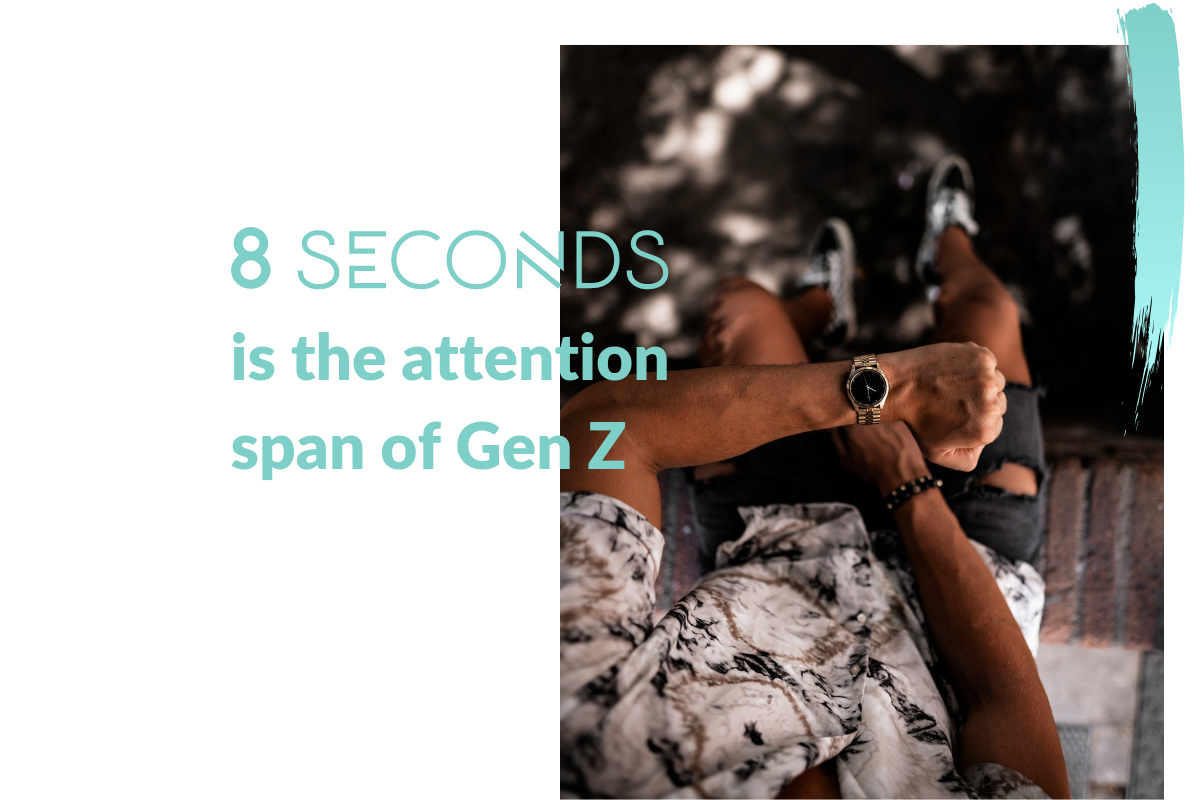Why (and how) new businesses should market to Gen Z
Did you know. Gen Z – those born between 1995 and 2015 – is entering the workforce and commands $44 billion in buying power. Another fun fact? By 2020, they will represent 40% of all customers. So if you weren’t thinking of pursuing this audience, you may want to reconsider this decision. But before going after this lucrative market, let’s look at what makes this valued-oriented and conscious generation unique.

Your brand’s values are more important than anything else (including your products and price)
Being a millennial myself, I often realize how the younger generation shops differently. It’s very common to see them caring less about pricing and more about the company’s value and everything gravitating around the brand. Failing to do this can cause some serious backlash. When I lived in England, Starbucks suffered its first ever drop in sales in the UK because of a boycott following a corporate tax avoidance. In other words, the cafe giant pretended to make zero profit so they didn’t have to pay any tax, which is partly used to support local communities. People got really upset and started a boycott movement.
From a business point of view, you need to make sure your values and mission are highlighted. More and more websites feature a dedicated ‘mission’ section on their homepage since you only have a few seconds to grab your audience attention when they land on your website (more on that later in this article).
Native, a deodorant company based in San Francisco, was created with the vision of offering quality products made with safe ingredients and cruelty-free. And they do a great job at promoting them as you can see below. This also shows the importance of creating a company built around values and not only profit-driven.
Since the younger generation is socially conscious, brands that take a social-first approach and engage with their audience about their values are particularly successful. So don’t hesitate to share updates and facts about missions your business is involved with on social media, publications, and third-party websites. Not only you will serve a great cause but your brand will also benefit from greater exposure.
Experiences over things
This one applies to Millennials and Gen Z. In an era where the biggest retailer doesn’t own a single store (Amazon) and Uber is the leader of the transportation service without owning a vehicle, Gen Z and Millennials consider owning things as something of the past. Studies have also demonstrated the importance of living real-life experiences as it makes people happier. Buying tangible products usually leads to what we call buyers remorse, while an experience is something you remember longer.
If your business is in services you’re in luck. But it doesn’t mean than those who sell tangible products are doomed. Regardless of your activity, the key to marketing with Gen Z is to make them part of an experience. By creating an immersive experience, you get to form an emotional connection with them. After all, a brand is the sum of all experiences.
Going even further, your brand is how your customers define it. They are the ones who share their experience with a brand on social media and tell the story about your brand. While you can reply (if they even tag you), they control the narrative. So always think about your customers on the receiving end and how they are going to share it on social platforms.
You can’t buy your way in, you need to be invited into their buying journey
The younger generation grew up with more technology at their fingertips than any other generation. When it comes to blocking unnecessary noise (read ads here) they’re really savvy. And they also easily detect traditional marketing tactics like retargeting, fake testimonials, etc.
In fact, 67% of the customer journey now happens before a company can directly interact with their audience – and yes this number is mostly driven by Gen Z. This means shoppers now do their own research, look for peer reviews, and what your business does other than commercializing products and services.

So to influence Gen Zers you need to create content they value when they browse online. This is your way to start putting your brand in front of them without being invasive. By doing this, you start getting their attention, and eventually their trust. And speaking of content, their attention span is only 8-second long (it’s more a filter than an actual attention-span) so that’s as long as you have to grab their attention. So keep your message catchy and short. And given how much content they consume on social media, your success will be defined by how you can stop them to scroll.
Focus your communication on social media
We just mentioned social media as a platform where you can interact with Gen Zers. A recent survey shows that you need to prioritize social media over emails and any other communication mediums to reach them. Yes, they spend a lot of time on social media, but the interesting part for businesses is that they’re highly engaged on those platforms. They share, like, comment. Use this as an advantage for your business. Invite them to interact with your brand online and make them part of your community.
When it comes to creating connections, the use of influencers shouldn’t be overlooked by small businesses. Those influencers whom this audience trust more than your brand are well known in their community and represent a great opportunity for your brand to gain some exposure, as long as it comes off authentic. And no, using influencers doesn’t necessarily mean paying a huge amount to “social celebrities” for brand endorsement, it literally means using anyone who can have an impact on your audience’s decision (including their friends).
With that said, make sure to spot and stay away from “influencers” looking to only take advantage of you. If you’re a small traditional business, think of incentivizing social media shares and likes. If you think of running a contest to get more followers, make sure your account has great content. This way when the contest ends, your new followers will be less tempted to unfollow you. If you’re in the B2B or in a niche market, I’d suggest to reach out to industry or thought leaders that are reputable and with a strong network to expand your brand awareness.
To wrap this up, Gen Z is a really lucrative market for entrepreneurs. Because of how they engage with brands and their social consciousness, it’s no longer about your product but about your brand, its values, and how they share Gen Zers share their stories with your brand. If you’re curious to know more about this market, drop us a line at contact@dotgrowth.co. Until then, see ya.
More tips for business pioneers
How scrappy businesses outrank their competitors on Google
It is possible for small businesses to compete with bigger players when it comes to online visibility. It requires some scrappiness and tactics. And this guide is here to help you achieve great results.
3 pillars shared by successful startups. Your secret sauce to get off to a great start
The truth is I had no intention to write about how to launch a successful start-up, as I thought it would be a quite pretentious and ambitious task. But a few weeks ago, my wife and I sat down and started to chat about her business idea (a lifestyle blog for...
Generating more revenue by valuing your existing customers
One thing big and small businesses have in common is the amount of effort and time it takes to acquire new customers. The difference between those who experience rapid growth and the others? How much effort they put towards their existing customers.




